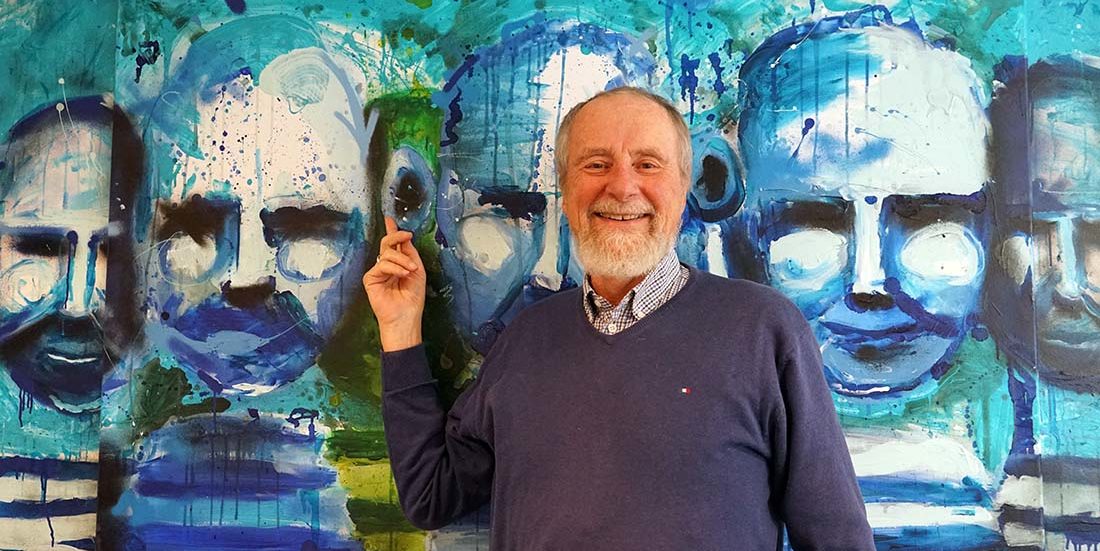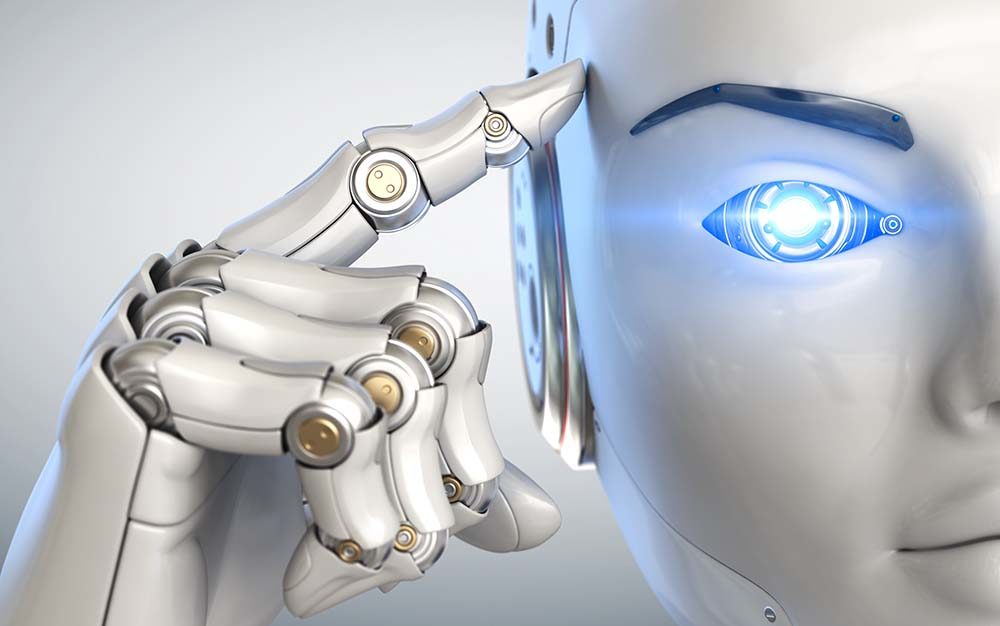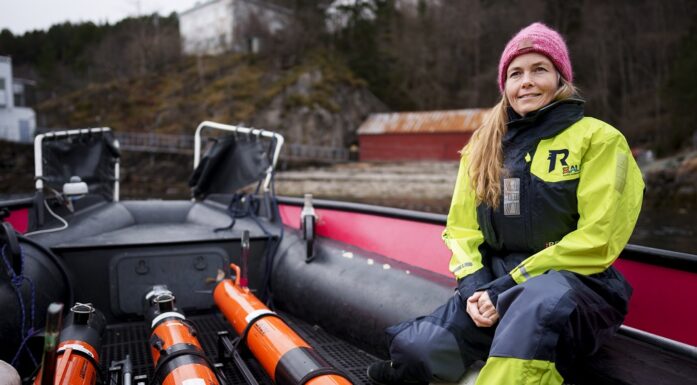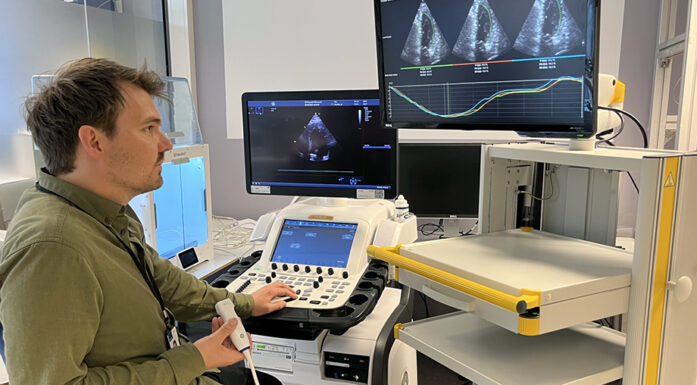Making artificial intelligence understandable for the rest of us
Humans have developed machines that can learn on their own. Machines using artificial intelligence develop “behaviours” based on their interpretation of data. But we know less about how they teach themselves. Professor Harald Martens has created the start-up company Idletechs to develop a technology that will make artificial intelligence more understandable for the rest of us.
Artificial intelligence is already here. You may not realize it, but whenever you use Gmail or Siri, you’re using artificial intelligence. Face recognition in photo software has also become an off-the-shelf commodity.
Machines can now learn to hear, talk, see, read and provide forecasts. Mathematical and statistical methods – along with large amounts of data and computing power – enable the machines to become self-learning. They develop “behaviours” based on interpreting data. We call this machine learning.
Is technology developing too fast?
It may seem a little scary that computers can learn to teach themselves. This is exactly what we see in science fiction films – robots taking over world. Can we really control the artificial intelligence we create?
“It’s problematic when machines spit out a solution that we don’t understand and can’t do quality control on,” says Martens. He is an adjunct professor at NTNU’s Department of Engineering Cybernetics and the founder of the Idletechs start-up.
“Machines can now learn to hear, talk, see, read and provide forecasts.”
Martens believes that technology is evolving much faster than we’re managing to handle it.
“That doesn’t serve anyone well. The data revolution should be a good thing for people. It will become something evil if we become alienated from it,” Martens says.
Article continues below photo.
Mathematics, statistics and large amounts of data have been Marten’s focus areas in academia for almost fifty years. Now he wants to give something back to society, and he’s doing it through his start-up company Idletechs.
“Idletech’s technology makes it possible to automatically analyse huge streams of technical measurement data in real time, allowing you to discover new connections and interpret the reasons behind them,” he said..
The new company’s technology is based on more than 200 scientific publications and several books written by Martens.
A flood of data
Never before has humankind produced more data. The amount of data is constantly increasing as more and more sensors are connected to networks. Businesses today have to handle a thousand times more data than they did 10 years ago. And these data are analysed by artificial intelligence systems that reveal patterns and relationships.
“Although most people have little interest in how their car brakes work, it’s very reassuring to know that someone does.”
“It’s really challenging to translate this potentially valuable information into usable and interpretable results. The answers may often be correct, but not always, and as users we have no way of understanding why this is the case,” says Martens.
He points out that this lack of understanding is unfortunate.
“Although most people have little interest in how their car brakes work, it’s very reassuring to know that someone does. It’s worrisome when important decisions are made by artificial intelligence systems with rules that no one understands the reasons for,” he says.
Best commercial idea
The Idletechs technology will be tested on ship machinery, on critical components in wind turbines and in the smelting industry. Other relevant markets are environmental monitoring, fish farming and aquaculture.
Article continues below photo.
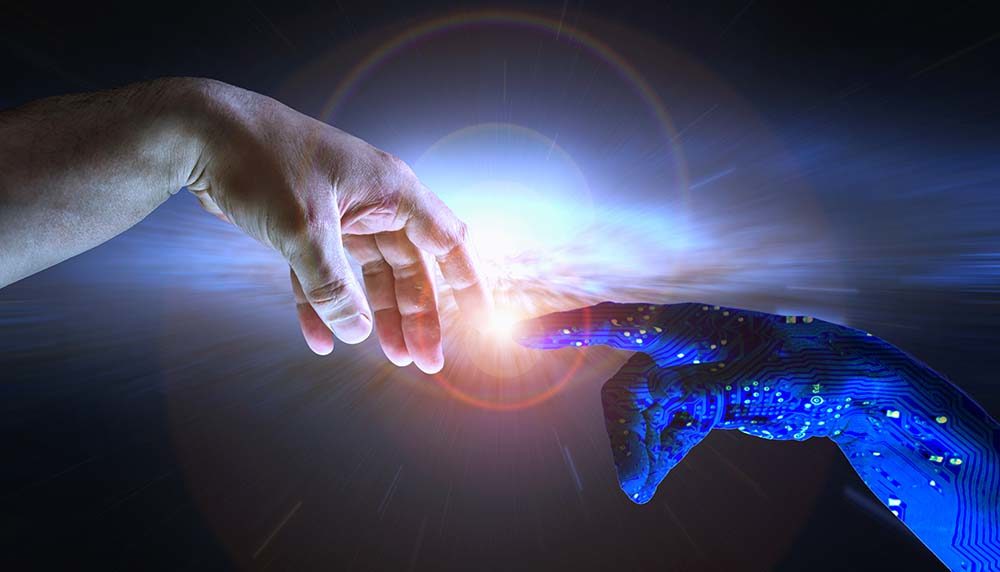
Martens believes technology is evolving much faster than we’re able to handle. “That doesn’t serve anyone well. The data revolution should be a good thing for people. It will become something evil if we become alienated from it,” he says. Photo: NTB scanpix
“This technology enables experts in different industries and disciplines to gain an overview of large amounts of data, and at the same time drill down into the results and see which data leads to the results. People won’t be overwhelmed by the amount of data, because the system extracts the essence and presents it intuitively. Our goal is to make good experts even better experts,” says Martens.
Martens believes the technology is relevant for a lot of people, whether they’re on land, at sea in the air, or out in space.
The Norwegian Space Centre awarded the 2018 Copernicus Prize for best commercial idea to Idletechs for its analysis tool for interpreting inSAR height measurement data.
Dreaming of listening to a furnace like a geologist
The company is initially focusing on large sensor systems with “perpetual” flows of multichannel measurement data. Example applications are thermal video cameras, hyperspectral imaging (cameras using a wide range of wavelengths) and vibration sensors.
“Our goal is to detect abnormal warming as soon as it happens. I dream of being able to have the technology to listen to a furnace, just like a geologist listens to the rumbling in the earth after an earthquake. In two to three years, this technology will be ready to go,” says Martens.
Trondheim can stake its claim
Billions of dollars have been invested all over the world to develop artificial intelligence. American technology giants are at the forefront : Facebook, Google, Apple and Amazon. Martens believes there’s no reason Trondheim shouldn’t be able to stake its claim in this tough competition.
“We have the ambition, technical environment and competent investors. These prerequisites put us in a good position to do fundamentally new things in the Trondheim region.
The professor points out that Idletechs is a mere stone’s throw from the Department of Engineering Cybernetics at NTNU.
“NTNU has made an ambitious commitment to Big Data Cybernetics. We now have five professors and an associate professor who are bringing together specialized expertise in cybernetics, chemometrics, physics and machine learning. We can see that interest in the field of Big Data Cybernetics is growing generally, as well as among the students,” he said.
Less room for unskilled workers
On the question of whether any jobs will remain for humans to do with the spread of artificial intelligence, Martens predicts that although artificial intelligence will no doubt replace many jobs in multiple industries, new jobs will also be created.
It will probably be harder for unskilled workers to acquire a new job when they lose it. The need for unskilled workers will drop, he believes.
“In my younger days in the food industry I was in favour of protecting jobs, but now I see that this development can’t be stopped,” says Martens.
He adds, “Artificial intelligence is amazing and can be used for all kinds of things. We’ll have self-driving cars, which will reduce the number of car accidents.”
“But it’s also a good idea to wait a little while before jumping on board, until the technology is well-developed and has been tested. We can’t expect everything to work perfectly at the outset.”
